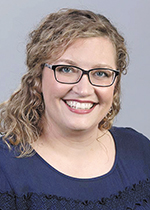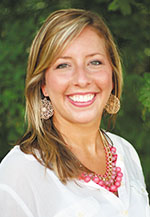Specialists Advise on How to Connect with Autistic Children
According to estimates from the Centers for Disease Control and Prevention's Autism and Developmental Monitoring Network, one in every 68 children has been diagnosed with an Autism Spectrum Disorder (ASD). In 2014, that number was one in 64 in Tennessee. Children with ASD are hospitalized more often than other children, making it highly likely that healthcare providers will come across patients with autistic conditions in their ER, hospital or clinic. Providers are having to learn how to provide proper (and sometimes creative) care to these special patients.
Because children process information from the world around them much differently than adults, they have distinct needs for managing the effects of stress and trauma. While this is true for all children, it is especially true for children with autism. They may have difficulty developing language skills and understanding what others say to them. Additionally, they might also have difficulty with nonverbal communication. And while some children may have a specific diagnosis, all children are still equally different. Therefore, a trip to the hospital or doctor can be extremely stressful for a person on the autism spectrum and it can be hard for providers to know the best way to interact with autistic patients and their parents. Fortunately, healthcare professionals are recognizing that providing quality care for children with ASD involves identifying unique needs and challenges.
The medical team at Le Bonheur Children's Hospital, trained in working specifically with children and their families, has recognized an opportunity to better serve patients with special needs with a multi-disciplinary team working to change how staff identifies and works with children with autism.
Jessica Kellough, director of Child Life at Le Bonheur, has served more than eight years on the inpatient Neuroscience unit where she gained experience working with children with autism.
"I am not an expert in working with children with autism, but I have learned the questions to ask to learn more about each child, while also working alongside their family to best meet each child's needs," she said. "We have found that we are most successful in creating a positive experience when we are able to create a plan and follow through with that plan to reduce their stressors and increase their coping."
As a child life specialist, Rachel Ryan works on the pediatric floor for Ayers Children's Medical Center at Jackson-Madison County General Hospital to help reduce the stress and anxiety of hospitalized children by providing play and social interaction; teaching and distraction during medical procedures; and assesses emotional and developmental needs of children.
"I am a one-person program which has been in existence at this hospital for almost 13 years," said Ryan. "As a child life specialist, the primary goal is to help reduce the stress and anxiety of hospitalized children and their families. We do this in a number of ways such as play, preparation, pain management, coping strategies and through family support."
Both child life specialists agree that using first person language can be helpful.
"This involves referring to them as a child with autism rather than defining them by their diagnosis, such as autistic child," said Kellough. "Choosing words that put the person first helps us make sure we are focusing on them as a person to meet their individualized needs."
Although patients at the Ayers Children's Center are short-term stays, Ryan has found that during this quick hospitalization one of the best ways to gain information is by asking the parent or guardian general questions such as: What are the child's special interests? What does the child like to do? What are their dislikes? How do you communicate best with your child? Are there any specific triggers we should be aware of? What do we need to know about your child to take the best care of them? This gives the medical staff a better idea of how to approach the child which will result in better outcomes for the patient. The more comfortable and prepared patients are, the more compliant they are.
Another Child Life technique used for all children is "soft language."
"For example, avoiding using terms such as 'put to sleep' as a child might associate that with putting an animal to sleep, rather than the induction of anesthesia," said Ryan. "Patience is especially key when working with children. Procedures and even conversations can take longer. Allowing extra time for a patient with autism to process what you said and then respond is important."
Environment can play an important part in stress for an autistic patient. Kellough suggests being aware of stimulation: loud sounds, many people talking, and lighting. Waiting areas may be too stimulating, so if possible move the patient to an area where there is lower stimulation, such as a private exam room while waiting.
A variety of activities can also be offered for normalization and distraction during hospital stays.
"Two of which we are most proud is music therapy and pet therapy," said Ryan. "We have witnessed firsthand the positive outcomes these can make."
"Children with autism benefit from routine and schedules, so anything that moves away from their routine may increase their stress and anxiety," Kellough said. "Adjust appointments to avoid wait times, such as scheduling appointment at the beginning of the day.
"Provide sensory items that promote a calming environment, if possible. We have autism coping kits that include items like a weighted lap pad, a light spinner, bubbles, vibrating tube, pop tubes, noise canceling headphones and other manipulatives. Some of the items are single-use and some are reusable. One of these kits could easily be pulled together for $25 to $50 and will be worth the investment after its first use."
Communication is key in all that is done but sometimes minimal verbal language is best. Kellough also recommends using pictures to support verbal communication. "It is important to explain what you are doing no matter how small of a task or transition you may think it is. Pictures can support verbal communication and be used to explain the steps of a process such as having blood drawn," she said. "Allow for repetition of the information, as this is how children with autism best learn."
Provide appropriate choices. Choices promote a sense of control for both children and their caregivers. Allowing children and their caregivers to feel like they are active participants in their care is a quick way to promote coping. The key element is to provide choices that are appropriate while not providing unrealistic choices. If it is not something they are allowed a choice, don't provide the option.
While it is always best if staff can plan ahead and create a plan to best meet an autistic patient's needs, sometimes there is no time to plan ahead. "Make time to meet their needs. Even if you are not able to invest in-depth time to assess their needs, asking what is stressful and what they love to do are quick ways to get to know each child's individual needs," said Kellough. "The three to five minutes it takes to ask these questions will be worth the time in the long run."
|
The Specialists
|
Resources:




 Jessica Kellough is a certified child life specialist and serves as director of Child Life at Le Bonheur Children's Medical Center. A graduate of Tennessee Tech, she has been at Le Bonheur for 12 years. She is an adjunct faculty member at the University of Memphis where she teaches courses related to Child Life and is currently pursuing a Master of Professional Studies with a concentration in Strategic Leadership.
Jessica Kellough is a certified child life specialist and serves as director of Child Life at Le Bonheur Children's Medical Center. A graduate of Tennessee Tech, she has been at Le Bonheur for 12 years. She is an adjunct faculty member at the University of Memphis where she teaches courses related to Child Life and is currently pursuing a Master of Professional Studies with a concentration in Strategic Leadership. Rachel Ryan has served as the certified child life specialist at Ayers Children's Medical Center of Jackson-Madison County General Hospital since 2007. A certified bereavement counselor, she serves on the Perinatal Hospice Team. Before beginning her career as a child life specialist, Ryan interned with the Child Life program at Le Bonheur Children's Hospital and is a member of the Association of Child Life Professionals. She has served as an adjunct instructor at Union University and the University of Tennessee at Martin.
Rachel Ryan has served as the certified child life specialist at Ayers Children's Medical Center of Jackson-Madison County General Hospital since 2007. A certified bereavement counselor, she serves on the Perinatal Hospice Team. Before beginning her career as a child life specialist, Ryan interned with the Child Life program at Le Bonheur Children's Hospital and is a member of the Association of Child Life Professionals. She has served as an adjunct instructor at Union University and the University of Tennessee at Martin.







